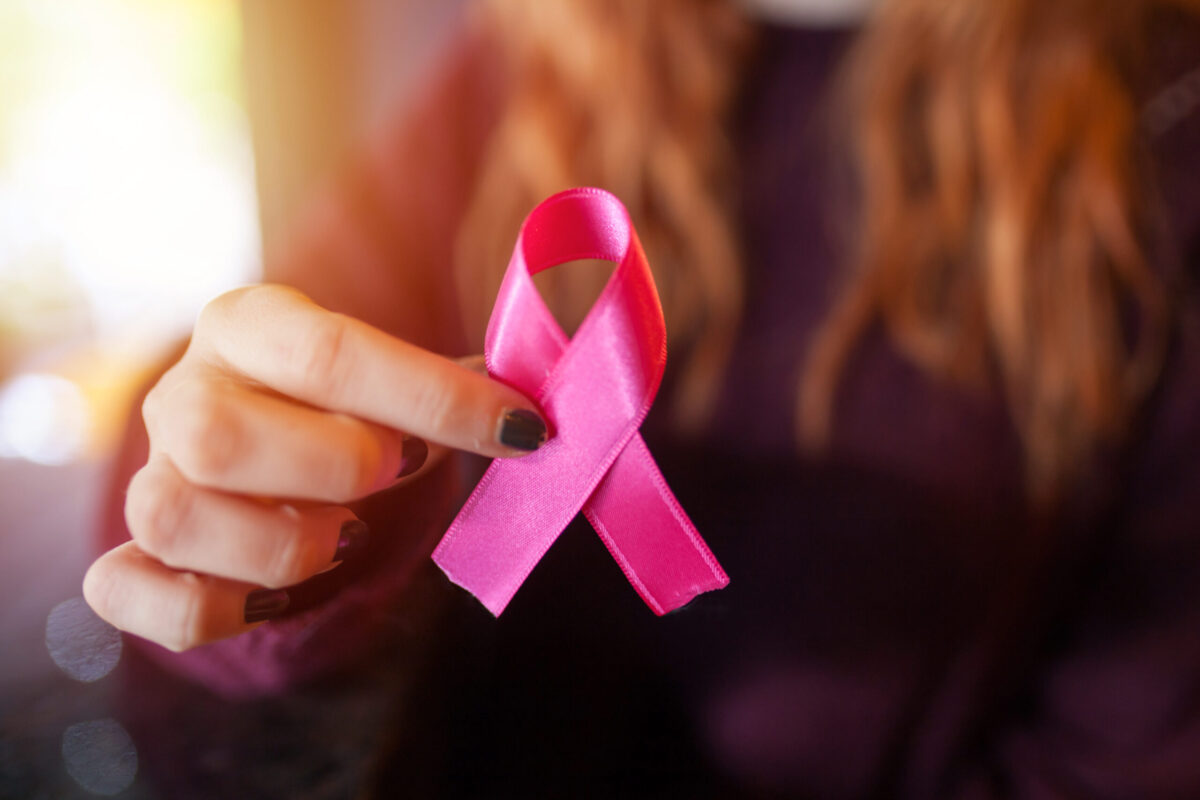Breast cancer prevention is always a popular topic in October. The focus is typically mammograms and self exams, both of which are key to breast health. But did you know that breastfeeding is also a proven way women can lower their breast cancer risk?
“Research has shown that mothers who breastfeed lower their risk of pre- and post-menopausal breast cancer,” says Laura Apyan, Women’s Health Case Manager and Certified Lactation Counselor (CLC) at BlueCross BlueShield of Tennessee. “And breastfeeding longer than the recommended 6 months can provide additional protection.”
But, Apyan reinforces that the decision to breastfeed is a very personal one and not every mother has the same experience.
“Less than 20% of women – in Tennessee and the U.S. as a whole — are able to stick with the leading recommendation that infants should be fed only breast milk for the first 6 months,” says Apyan. “What’s most important is for moms to protect their mental health so they can be good parents to their baby.”
How does breastfeeding help with breast cancer prevention?
Apyan: Most people don’t realize how many protective mechanisms there are in breastfeeding for moms in addition to babies.
Studies have shown that the more breastfeeding a mom does, the more they are protected against breast cancer. And it doesn’t all have to be for one baby — it’s a cumulative effect, so can be for multiple babies over a lifetime. The key timeframe for effectiveness is breastfeeding for a minimum of 6 months.
Additional protections of breastfeeding
In addition to breast cancer prevention, breastfeeding has been shown to help protect women against:
- Hypertension
- Type II diabetes
- Ovarian cancer (especially invasive and aggressive forms)
Why does breastfeeding help prevent breast cancer?
Apyan: Scientists believe a few factors work together to create this protection.
1. Lower estrogen levels
Estrogen can encourage some breast cancers to grow. Lactating moms experience hormonal changes, including a decrease in estrogen, that have a protective effect. And, since most women have fewer menstrual cycles while breastfeeding — in addition to 9 missed periods during pregnancy — that results in lower estrogen levels over the course of their lives.
2. Breast milk
Certain components in breast milk boost immunity and contribute to safe, effective protection against the development of breast cancer.
3. Shedding of breast tissue
Breastfeeding contributes to a “sustained exfoliation,” or shedding, of breast tissue. That changeover of epithelial cells seems to decrease breast cancer by eliminating cells with DNA damage or mutations.
4. Pregnancy
Pregnancy itself is also a preventive factor. Women tend to have a higher risk of breast cancer if they:
- Haven’t had a full-term pregnancy by age 30, or if they
- Have their first child after age 30.
This happens because breast cells aren’t actually fully mature until after a woman’s first full-term pregnancy. When breast cells are made during adolescence, they’re immature and very active until full-term pregnancy. That immaturity makes them more likely to act in irregular, possibly cancer-causing ways. The first full-term pregnancy makes the breast cells fully mature, so they grow more regularly.
Does pumping have the same benefits as breastfeeding?
Apyan: Lactation is the key process, so pumping does help with breast cancer protection. However, there is a difference between actually breastfeeding and pumping.
Some of the effects of breastfeeding are enhanced with direct contact, such as the release of oxytocin — aka the “love hormone” — that only happens for mom when there’s skin-to-skin contact with the baby.
Oxytocin has a profound effect on mom and baby:
- Bringing on a calm state
- Reducing stress
- Enhancing feelings of affection between mother and child
- Promoting bonding
What if you can’t or choose not to breastfeed?
Apyan: As we previously touched on, only 1 in 5 women are able to stick with the leading recommendation that infants only be fed breast milk for the first 6 months. The journey is different for everyone, and breastfeeding is difficult for many moms. The important thing to remember is that you aren’t alone in this.
I recommend taking a look at our Breastfeeding guide for Tennessee moms (plus 5 tips to help). And if you’re ultimately unable to breastfeed, focus on prevention: Keep up with annual visits to your gynecologist, self exams and mammograms.
Self examsRemember: Self exams are less about finding a lump and more about looking for persistent changes in your breast, such as: • Increased density/heaviness • A change in shape • Tenderness or pain • Change in skin texture |
Mammograms• Women between age 50 and 74 should get a mammogram every 2 years to screen for breast cancer. • Women between age 40 and 49 may also want to get a mammogram if they have a family history of breast cancer. |
More from WellTuned
Get more information about specific health terms, topics and conditions to better manage your health on bcbst.com. BlueCross BlueShield of Tennessee members can access wellness-related discounts on fitness products, gym memberships, healthy eating and more through Blue365®. BCBST members can also find tools and resources to help improve health and well-being by logging into BlueAccess and going to the Managing Your Health tab.


